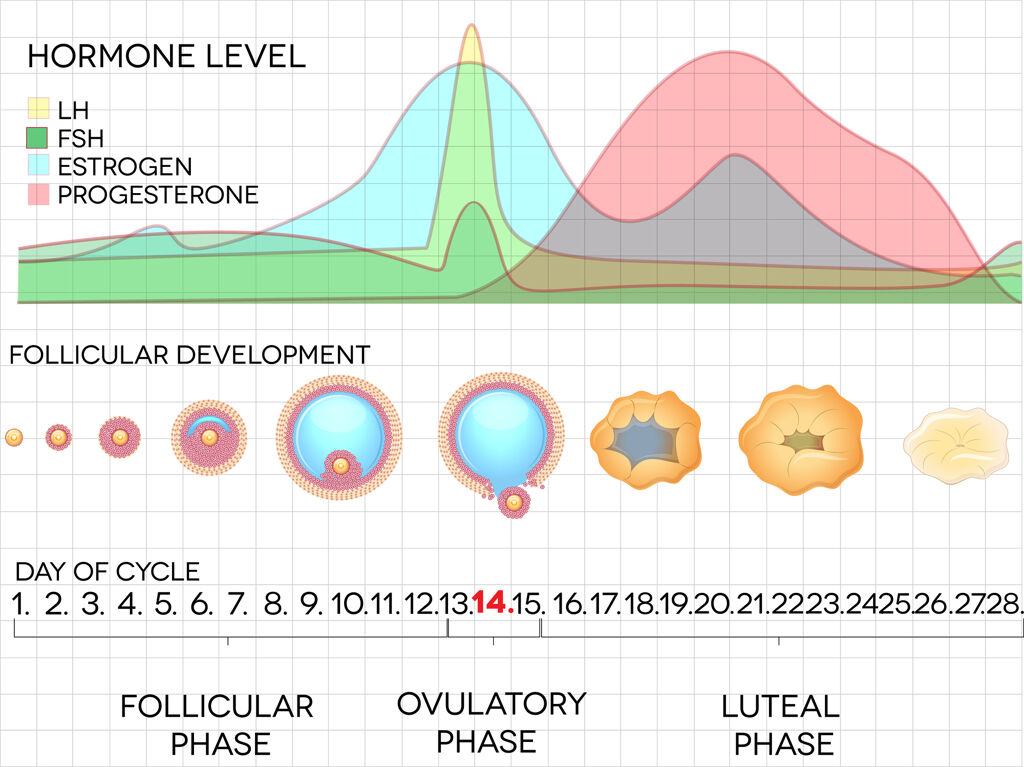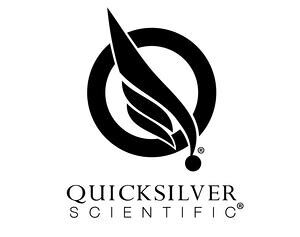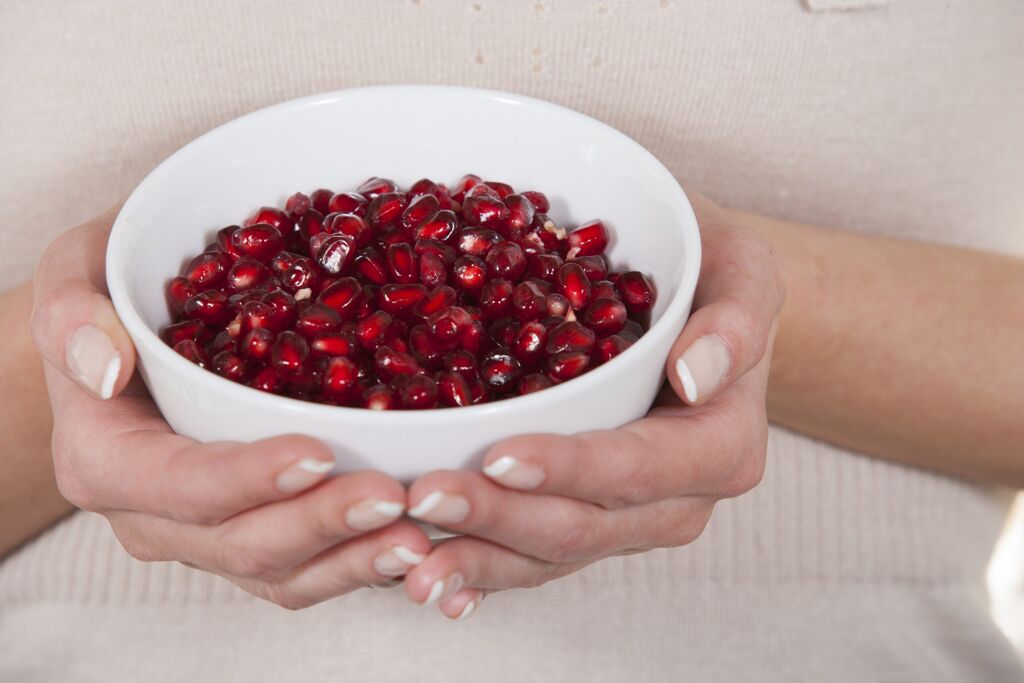PCOS: Polycystic Ovarian Syndrome 2: The Solutions

Last week, we wrote about Polycystic Ovarian Syndrome and what causes it. This week, we talk about the solutions to PCOS.
Solutions to PCOS
There are many things we can do in Functional Medicine to address root causes of PCOS and we will discuss them below.
But the most effective treatments for PCOS are: Diet and Exercise
Lifestyle corrections to address metabolic syndrome, improve gut health, prevent excessive immune activation and minimize exposure to toxins and inflammatory agents, appears to be the most sustainable therapy for PCOS (Patel, 2018).
Diet
Dietary changes are considered the first line of treatment for those with PCOS (Zhang F, 2019).
Hyperinsulinemia and increased androgens are part of PCOS. Carbohydrates are among the main stimulators of insulin release. Research shows that dairy products and carbohydrates elicit greater postprandial insulin secretion than non-starchy vegetables and fruits (Phy JL, 2015). One study demonstrated that an 8-week low-carb/low-dairy diet resulted in weight loss, improved insulin sensitivity and reduced testosterone in women with PCOS (Phy JL, 2015).
We recommend a diet that is:
- Organic
- Anti-inflammatory
- Whole foods diet
- Low in sugar
- Paleo (grain & dairy free) or gluten-free Mediterranean diet
- High in protein vs. carbohydrates
- Moderate to low carb although this does depend somewhat on the specific case and any degree of adrenal or thyroid issues
- Rich in omega-3 fats (fatty fish like wild salmon, sardines, herring, anchovy, walnuts, flaxseeds, chia seeds) and fiber-rich foods such as vegetables and fruits
To Read About Blog Topic, Scroll Down
Want To Work With Our Clinic?
Do you have a chronic or mystery illness that no one has been able to help you with? Are you simply wanting to re-connect with a healthier version of yourself? It’s Time To Finally Feel Better!
Specific Foods:
- Brightly colored vegetables and fruit are the best source of antioxidants to combat oxidative stress. Some characteristics of PCOS (obesity, abdominal adiposity, androgen excess and insulin resistance) contribute to oxidative stress and inflammation (Amini L, 2015). The best food source of antioxidants is a wide variety of fruits and vegetables, especially all types of berries (blueberries, goji berries, raspberries, strawberries, etc.), kale, red cabbage, beets, artichokes, spinach, broccoli, carrots, potatoes, asparagus, avocados, radish, lettuce, sweet potatoes, squash, pumpkin and collard greens.
- Protein and glucose were compared as part of a PCOS diet (Kasim-Karakas SE, 2007). In patients with PCOS, glucose caused significantly more hyperinsulinemia than did protein (Kasim-Karakas SE, 2007). We therefore recommend increasing protein intake and restricting simple sugar intake in a PCOS diet (Kasim-Karakas SE, 2007).
- Cinnamon increases antioxidant status, which helps to fight AGEs (Borzoei A, 2018). It also improves serum level of total cholesterol, LDL cholesterol and HDL cholesterol (Borzoei A, 2018).
- Flaxseed oil supplementation for 12 weeks in women with PCOS significantly decreased insulin levels thereby improving insulin resistance, decreased triglycerides and cholesterol levels and improved the inflammation marker hs-CRP (Mirmasoumi G, 2018).
- Walnuts and almonds consumption had beneficial effects on plasma lipids, LDL cholesterol and reduced androgens in PCOS (Kalgaonkar S, 2011).
- Curcumin reduced insulin resistance, as well as inflammation markers (IL-6 and CRP) levels in PCOS rats that were treated with various concentrations of curcumin for 14 days (Mohammadi S, 2017).
Avoid Advanced Glycation End-Products or AGEs:
It is best to avoid AGEs as they contribute to PCOS (Rutkowska AZ, 2016). Food and smoking are the main sources of exogenous AGEs in daily life. The biochemical composition of a meal, cooking method and time and temperature of food preparation all affect the forming of AGEs (Rutkowska AZ, 2016).
To avoid AGEs:
- Quit smoking
- Avoid fried and fast foods
- Fill your plate with fruits and vegetables
- Don’t cook at very high temperatures
- Cook low (temperature) and slowly (instead of short cooking times at very high heat)
- Keep it moist – cook with liquids instead of just dry cooking
- Cook more at home
EXERCISE
Exercise is one of the key approaches to PCOS because it can help lose weight and reduce insulin resistance / increase insulin sensitivity, a critical part of addressing PCOS. Again, we caution here that status of HPA axis health is an important consideration in exercise recommendations. Assuming there are no contraindications to exercise, then we recommend pursuing whatever exercise or activity that you love and starting slowly if you are new to exercise.
OTHER WAYS TO ADDRESS PCOS
- Intermittent Fasting (IF) can be very effective in increasing insulin sensitivity. However, this depends on the case as we would not pursue IF if someone is suffering from moderate to severe HPA axis dysregulation, is pregnant or breastfeeding or has a history of eating disorders.
- Maintain a healthy weight. If overweight or obese, lose weight.
- Balance blood sugar and resolve insulin resistance.
- Address metabolic syndrome – including high cholesterol, high blood pressure, insulin resistance and/ or high blood sugar, abdominal adiposity. These can all be improved with diet and lifestyle changes.
- Rebalance hormones. Work with us to use blood and DUTCH testing to eliminate any hormonal imbalances, especially involving insulin and androgens. As part of the rebalancing of hormones, check thyroid hormone levels.
- Address any potential gut issues and support gut health generally. Correct any imbalances or dysbiosis in the gut bacteria. Fix leaky gut as intestinal permeability has been linked to PCOS (Zhang F, 2019). One study has found that modification of gut microbiota with probiotic, prebiotic and synbiotics shows these can help to treat PCOS (Yurtdaş G, 2019). Synbiotics are a combination of prebiotics and probiotics that have a synergistic effect by inhibiting the growth of pathogenic bacteria and enhancing the growth of beneficial organisms (Yurtdaş G, 2019).
- Avoid exposure to environmental toxins, endocrine disruptors, BPA, chemicals, pesticides and other toxins. Eat an organic diet, clean up your personal care and household cleaning products. Use the EWG database to check the safety level of various personal care products https://www.ewg.org/skindeep/.
SUPPLEMENTS that can be helpful:
- Magnesium and zinc have beneficial anti-inflammatory and antioxidant effects (Ebrahimi FA, 2018).
- Myo-inositol is a common form of inositol, a vitamin-like substance. Myo-inositol improves insulin sensitivity and supports normal follicle development (Unfer V, 2017). It addresses both the sex hormone imbalance and improves the insulin sensitivity, which are two of the primary drivers in PCOS (Unfer V, 2017).
- Quercetin is a flavonoid found in some plants that has antioxidant, anti-inflammatory and antiallergic properties and is used for the treatment of metabolic and inflammatory disorders (Pourteymour Fard Tabrizi F, 2020). Quercetin is anti-oxidative due to its ability to reduce the generation of free radicals (Pourteymour Fard Tabrizi F, 2020). Fruits and vegetables, particularly onions, apples, berries, citrus, red grapes, nuts, seeds and tea, are a good source of quercetin.
- Vitamin D supplementation in women with PCOS significantly decreased the inflammation marker, hs-CRP, and significantly increased total antioxidant capacity (TAC) levels (Akbari M, 2018). We recommend testing your vitamin D levels before supplementing. We like to see vitamin D levels around 40-60 ng/mL.
- Vitamin D and probiotic co-administration has positive effects on mental health, hormonal, inflammatory and oxidative stress parameters in women with PCOS (Ostadmohammadi V, 2019). Taken together, vitamin D and probiotics significantly improved general health scores (Ostadmohammadi V, 2019).
- Berberine can help reduce elevated blood sugar, improve insulin sensitivity, and reduce inflammation and obesity (Wang H, 2018). This is especially effective in cases where fasting insulin and/or glucose are elevated.
As always, please get in touch with us. If you or someone you know is suffering from PCOS, get in touch with our clinic today.Book a free 15-min discovery call to see how we can help you with your symptoms. We can answer your questions and help you book an initial consult with one of the functional medicine doctors in our clinic.
Book My Free Phone Health Evaluation Functional Medicine Certification for Clinicians
Are You Suffering From A Chronic Illness?
Does your current health situation look like this…
- Do you feel that you have tried many things and either nothing works, or the treatment does not hold?
- Have you been told that there is nothing that can be done to reverse your illness and you just need to manage symptoms?
- Does your illness impact your work, your family, your happiness and your social life?
We specialize in finding answers and solutions for complicated chronic illness when people feel like they have tried everything. If this sounds like you, book a free call with us to see if we are the right fit for your health goals.
Dr. Miles has spoken for the following organizations:

















